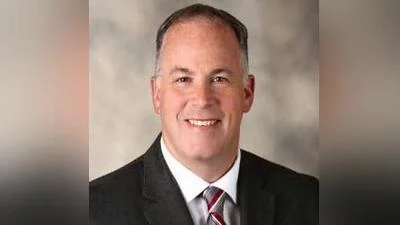Jim Piwowarczyk, Wisconsin State Representative for 98th District | www.facebook.com
Jim Piwowarczyk, Wisconsin State Representative for 98th District | www.facebook.com
According to the Wisconsin State Legislature's official website, the bill was described as follows: "the employment eligibility verification program and granting rule-making authority. (FE)".
The following is our breakdown, based on the actual bill text, and may include interpretation to clarify its provisions.
In essence, this bill aims to amend state statutes to require the use of the Federal Employment Eligibility Verification Program (E-Verify) for employment and contracting purposes. It prohibits state agencies from purchasing materials or contracting services from employers not enrolled in E-Verify, or those employing individuals identified as ineligible to work in the U.S. The Department of Administration cannot enter construction contracts with these employers either. The legislation mandates state and local governments to verify potential employees' work eligibility through E-Verify before hiring. Exceptions exist if the E-Verify program is discontinued. The bill's provisions take effect on the specified date in the enactment clause.
The bill was co-authored by Senator Eric Wimberger (Republican-2nd District), Representative Robert Brooks (Republican-59th District), Representative Barbara Dittrich (Republican-99th District), Representative Joy L. Goeben (Republican-5th District), Representative Daniel Knodl (Republican-24th District). It was co-sponsored by Senator John Jagler (Republican-13th District), Senator Steve L. Nass (Republican-11th District), and Senator Cory Tomczyk (Republican-29th District), along six other co-sponsors.
Jim Piwowarczyk has co-authored or authored another 80 bills since the beginning of the 2025 session, with none of them being enacted.
Piwowarczyk, a Republican, was elected to the Wisconsin State Assembly in 2025 to represent the state's 98th Assembly district, replacing previous state representative Adam Neylon.
In Wisconsin, the legislative process starts when a senator, constituent, group, or agency proposes an idea for a bill. After drafting, the bill is introduced, numbered, and referred to a committee for review and public input. If approved, it moves through three readings and votes in both the Senate and Assembly. Once both chambers pass the same version, the bill goes to the governor, who can sign it, veto it, or let it become law without a signature. Only a small share of bills introduced each session ultimately become law. You can learn more about the Wisconsin legislative process here.
| Bill Number | Date Introduced | Short Description |
|---|---|---|
| AB281 | 05/30/2025 | The employment eligibility verification program and granting rule-making authority. (FE) |
| AB230 | 05/02/2025 | Requiring retail sellers to accept cash and providing a penalty. (FE) |
| AB223 | 04/23/2025 | Residency requirements for persons circulating nomination papers or recall petitions |
| AB191 | 04/15/2025 | Requiring a subpoena to a law enforcement officer or tribal law enforcement officer served in official capacity to be served at the officer’s work address |
| AB165 | 04/08/2025 | Local guaranteed income programs |
| AB157 | 04/02/2025 | Prohibiting filing or recording contracts for services or materials that do not improve real estate and providing a penalty. (FE) |
| AB124 | 03/11/2025 | Prohibiting persons who have been convicted of a violent crime from changing their name and providing a penalty |
| AB60 | 02/24/2025 | Referendum questions for certain referenda that affect property taxes. (FE) |
| AB24 | 02/12/2025 | County sheriff assistance with certain federal immigration functions. (FE) |






 Alerts Sign-up
Alerts Sign-up